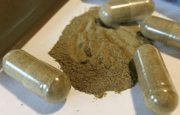6 frozen foods that can help lower your blood pressure, according to experts
- Replies 0
Sometimes, the best choices for your long-term health and overall well-being are the ones that don’t shout for attention, quietly sitting right in front of you as part of your daily routine.
And when it comes to managing one of the most widespread and persistent chronic health conditions in the country, it turns out that small, consistent shifts in everyday habits may actually carry more weight than drastic overhauls.
The frozen food aisle—often dismissed as a haven for processed convenience—has been steadily gaining attention as a surprisingly practical and accessible option for those looking to make smarter nutritional decisions without overcomplicating their lives.
What’s already sitting in your freezer may be doing more to support your heart health and dietary goals than you’ve ever stopped to consider.
Roughly half of American adults are living with high blood pressure, yet many don’t even know it’s a problem until complications set in.
Dietitians point out that frozen vegetables like spinach are an underrated way to add blood pressure-friendly nutrients into daily meals.
Spinach is rich in potassium, calcium, magnesium and nitrates—all of which support healthier blood flow.
Studies have linked nitrate-rich vegetables like spinach to a measurable drop in both systolic and diastolic blood pressure.

Berries don’t have to be fresh to be functional—in fact, frozen berries can be more nutrient-dense because they’re picked at peak ripeness. Blueberries, strawberries, and raspberries contain polyphenols and anthocyanins, which help keep blood vessels relaxed and reduce inflammation.
One study found that daily blueberry intake improved arterial stiffness and vascular function in people with hypertension. Frozen berries are easy to blend into smoothies, toss into oatmeal, or snack on straight from the freezer.
Edamame may look like a simple snack, but it’s loaded with fiber, magnesium, potassium, and plant protein. These nutrients work together to support blood vessel health, balance sodium levels, and promote nitric oxide production, which improves circulation.
Just one cup of prepared frozen edamame provides nearly a quarter of your daily magnesium needs and a solid amount of potassium. That’s why dietitians often recommend it as both a side dish and a sneaky add-in for stir-fries, dips, or salads.
Also read: Heart attack deaths are down—but these conditions are now claiming more lives
Wild-caught frozen salmon is another freezer find with serious benefits for blood pressure. It’s a rich source of omega-3 fatty acids like DHA and EPA, which are known to reduce inflammation and improve blood vessel flexibility.
Experts say just one 4-ounce serving can deliver the ideal 2 to 3 grams of omega-3s needed to support heart health. Plus, frozen salmon cooks straight from the freezer, making it a fast, no-fuss protein for weeknight meals.
Frozen beets are a colorful option that pack a punch when it comes to nitrates—compounds that improve blood flow and help lower systolic blood pressure.
While most research has focused on beetroot juice, frozen beets still deliver many of the same blood pressure-friendly compounds.
Also read: The simple tweak that could make your workouts even better for your heart
Dietitians love that frozen beets come pre-cooked and cut, making them easy to add to smoothies, salads, or roasted veggie mixes. They’re also less messy, making them a convenient staple to always keep on hand.
Green peas might be basic, but their nutrient profile is anything but. Packed with fiber, plant protein, and bioactive peptides, they’ve been shown to lower blood pressure when consumed regularly.
One study found that eating just under a cup of legumes per day—including peas—was associated with a 43% lower risk of developing hypertension. Their mild flavor and quick prep time make them an easy add-in for everything from pasta to grain bowls.
Read next: Three simple foods that support heart health—without breaking your grocery budget

How often do you use frozen foods for more than convenience? Do you already have any of these in your freezer, or are you thinking about adding them now? Drop your favorite frozen go-to’s in the comments, and let us know how you’re making heart-smart choices at home.
And when it comes to managing one of the most widespread and persistent chronic health conditions in the country, it turns out that small, consistent shifts in everyday habits may actually carry more weight than drastic overhauls.
The frozen food aisle—often dismissed as a haven for processed convenience—has been steadily gaining attention as a surprisingly practical and accessible option for those looking to make smarter nutritional decisions without overcomplicating their lives.
What’s already sitting in your freezer may be doing more to support your heart health and dietary goals than you’ve ever stopped to consider.
Roughly half of American adults are living with high blood pressure, yet many don’t even know it’s a problem until complications set in.
Dietitians point out that frozen vegetables like spinach are an underrated way to add blood pressure-friendly nutrients into daily meals.
Spinach is rich in potassium, calcium, magnesium and nitrates—all of which support healthier blood flow.
Studies have linked nitrate-rich vegetables like spinach to a measurable drop in both systolic and diastolic blood pressure.

6 frozen foods that can help lower your blood pressure, according to experts. Image source: Eduardo Soares / Unsplash
Berries don’t have to be fresh to be functional—in fact, frozen berries can be more nutrient-dense because they’re picked at peak ripeness. Blueberries, strawberries, and raspberries contain polyphenols and anthocyanins, which help keep blood vessels relaxed and reduce inflammation.
One study found that daily blueberry intake improved arterial stiffness and vascular function in people with hypertension. Frozen berries are easy to blend into smoothies, toss into oatmeal, or snack on straight from the freezer.
Edamame may look like a simple snack, but it’s loaded with fiber, magnesium, potassium, and plant protein. These nutrients work together to support blood vessel health, balance sodium levels, and promote nitric oxide production, which improves circulation.
Just one cup of prepared frozen edamame provides nearly a quarter of your daily magnesium needs and a solid amount of potassium. That’s why dietitians often recommend it as both a side dish and a sneaky add-in for stir-fries, dips, or salads.
Also read: Heart attack deaths are down—but these conditions are now claiming more lives
Wild-caught frozen salmon is another freezer find with serious benefits for blood pressure. It’s a rich source of omega-3 fatty acids like DHA and EPA, which are known to reduce inflammation and improve blood vessel flexibility.
Experts say just one 4-ounce serving can deliver the ideal 2 to 3 grams of omega-3s needed to support heart health. Plus, frozen salmon cooks straight from the freezer, making it a fast, no-fuss protein for weeknight meals.
Frozen beets are a colorful option that pack a punch when it comes to nitrates—compounds that improve blood flow and help lower systolic blood pressure.
While most research has focused on beetroot juice, frozen beets still deliver many of the same blood pressure-friendly compounds.
Also read: The simple tweak that could make your workouts even better for your heart
Dietitians love that frozen beets come pre-cooked and cut, making them easy to add to smoothies, salads, or roasted veggie mixes. They’re also less messy, making them a convenient staple to always keep on hand.
Green peas might be basic, but their nutrient profile is anything but. Packed with fiber, plant protein, and bioactive peptides, they’ve been shown to lower blood pressure when consumed regularly.
One study found that eating just under a cup of legumes per day—including peas—was associated with a 43% lower risk of developing hypertension. Their mild flavor and quick prep time make them an easy add-in for everything from pasta to grain bowls.
Read next: Three simple foods that support heart health—without breaking your grocery budget
Key Takeaways
- Nearly half of US adults are estimated to have high blood pressure, yet many remain unaware due to its lack of symptoms.
- Dietitians recommend frozen spinach, berries, edamame, salmon, beets, and green peas as nutrient-rich options to support lower blood pressure.
- Nutrients like potassium, magnesium, plant protein, fiber, nitrates, and omega-3 fatty acids are shown to help regulate blood flow and reduce vascular strain.
- Shoppers should check sodium content on packaging and opt for lower-sodium brands to maximize heart health benefits from frozen food choices.






